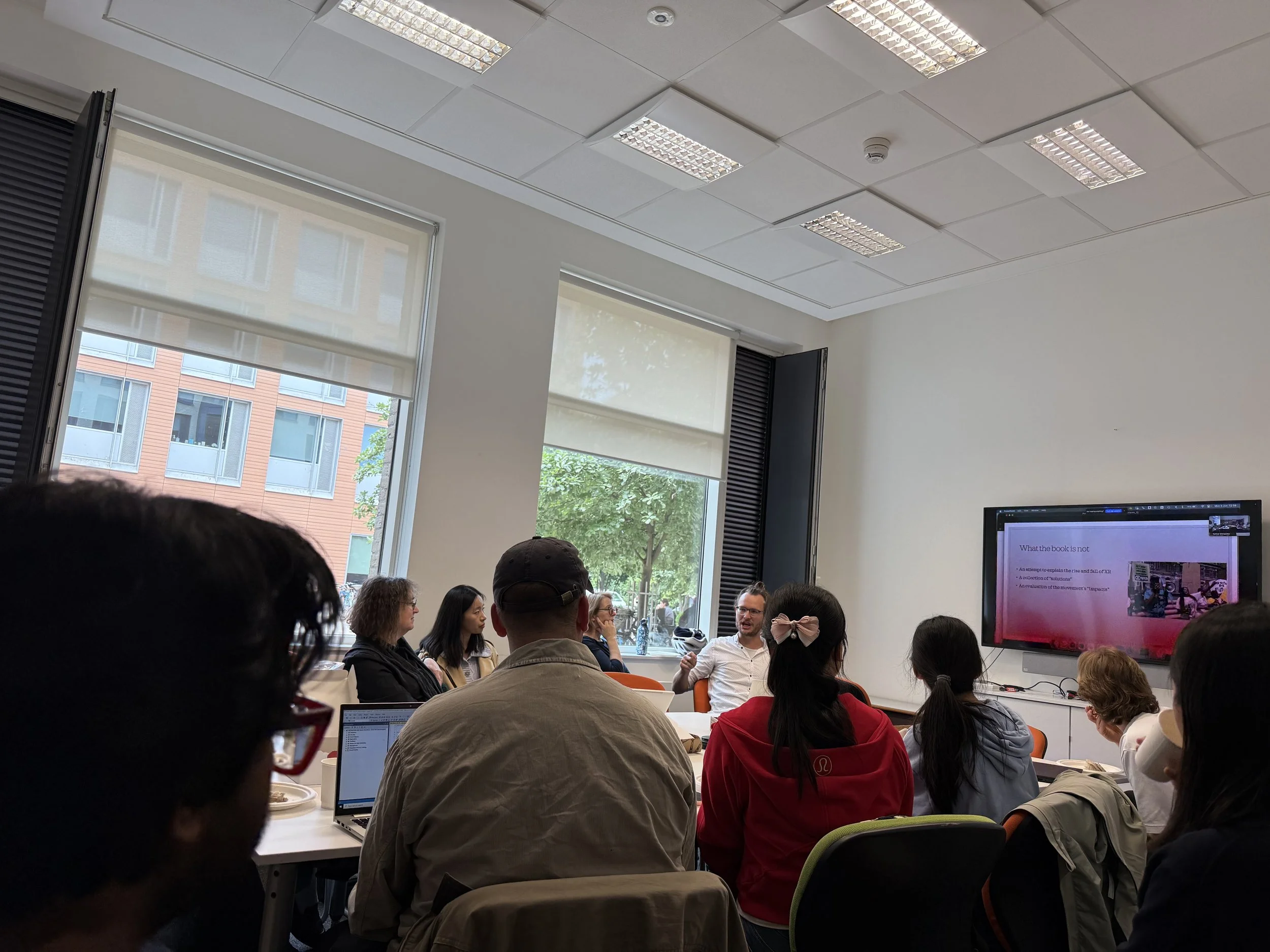Tobias Müller (CRASSH, University of Cambridge) will be presenting his work on “Planetary Uprising: Extinction Rebellion and The Political Thought of the Climate Crisis”.
About this session: The global climate movement has been one of the most influential actors shaping how we think about the climate crisis. However, we know little about the political thought animating the movement, what theories of change are developed by those at the frontlines of climate mobilization and how their thinking travels across the globe. Based on extensive fieldwork with Extinction Rebellion in Mexico, South Africa, the UK and the US, I will trace how the ideas of the movement have spread, how they have transformed in different local contexts and how activists on the ground develop new visions of politics at the intersections of colonialism, capitalism and the planetary catastrophe.
About our speaker: Tobias Müller is a Leverhulme Early Career Fellow at the Centre for Research in the Arts, Social Sciences and Humanities (CRASSH), University of Cambridge. His research interests include political and social theory, the politics of climate change, secularism and Islam in Europe, and decolonial and feminist theory. He is Principal Investigator of the project “Democratic Futures: Climate change, coloniality and the state” which explores the epistemic, spiritual, intersectional, decolonial and reparationist dimensions of the emerging planetary politics.
When: Monday 9th of June
12.30-12.45 Light lunch and networking
12.45-14.00 Talk and Q&A.
Where: CRASSH meeting room (Alison Richards Building) on the Sidgwick site.
Lunch: A light lunch will be provided, but bring along your drink of choice!
Zoom: You can also join us virtually on Zoom.
The weekly climaTRACES workshops, organised by Kamiar Mohaddes and Henning Zschietzschmann, are attended by a diverse group of people from economics, geography, politics, engineering, business, earth sciences, natural sciences, and history, generating interdisciplinary discussion. One person leads the session, on either a paper they have written, a work in progress, or just an idea they have and would like feedback on. This is also an opportunity for people to find our more about the team on what climaTRACES have been up to and what future events and research projects are being developed.

